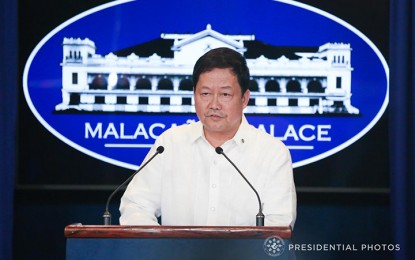By Benjamin Pulta/Philippine News Agency

MANILA — Justice Secretary Menardo Guevarra on Tuesday said the revival of death penalty in the country is a strong deterrent against crimes.
“The Constitution grants the Congress the authority to impose the death penalty for compelling reasons involving heinous crimes. it is therefore up to the Congress to determine the parameters of what constitutes a heinous crime,” Guevarra told reporters.
“As secretary of justice, I believe that the imposition of the death penalty may somehow deter the commission of serious crimes. Indeed, it is difficult to measure or prove a negative proposition; who will ever know how many crimes did not happen because of the fear of the death penalty? But ordinary human behavior indicates that the fear of being put to death for the commission of a crime will naturally prompt a criminally minded person to think twice,” he added.
In 1993, capital punishment was restored under Republic Act 7659 during the term of former President Fidel Ramos.
In 1996, Republic Act 8177 was passed, prescribing the use of lethal injection as the method of carrying out capital punishment.
In 2006, former President Gloria Macapagal-Arroyo signed Republic Act 9346, which abolished the death penalty and downgraded the maximum penalty for crimes to reclusion perpetua (imprisonment of up to 40 years) and life imprisonment.
The Bureau of Corrections (BuCor) presently maintains the lethal injection chamber in Muntinlupa.
Among the most sensational execution for drug-related offenses was that of Chinese restaurateur and businessman Lim Seng who was executed by musketry in a firing range in Fort Bonifacio on January 15, 1973.
Lim Seng a.k.a. Gan Sup So, was executed during martial law by a seven-man firing squad detail under Lt. Jose Agawin after he was found guilty by a court of operating a drug cartel from his suite at the Manila Hotel where he ran a heroin empire from laboratories in rented mansions, particularly in Caloocan and other parts of Metro Manila.
On Feb. 5, 1999, Leo Echegaray was executed via lethal injection after he was convicted of raping his 10-year-old stepdaughter.
For the latest updates about this story, visit the Philippine News Agency website
